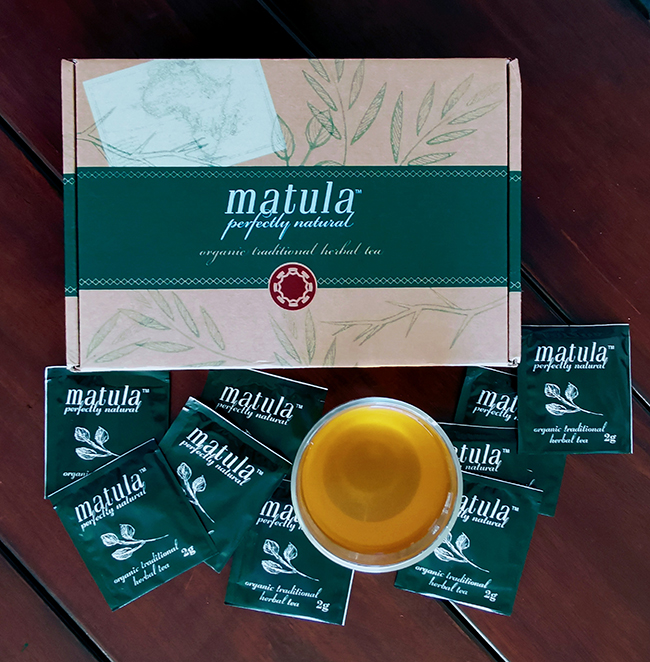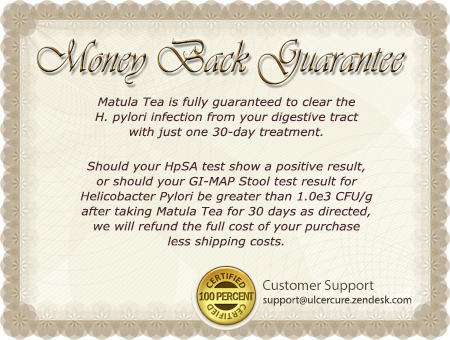Can Matula Tea Help with GERD?
If you struggle with acid reflux, you’ve likely tried cutting out spicy foods, sleeping upright, or popping antacids after meals. But what if the real issue isn’t too much acid, but a hidden infection in your stomach? Can Matula Tea help with GERD by addressing this underlying problem?
One lesser-known trigger of GERD is Helicobacter pylori (H. pylori), a spiral-shaped bacterium that disrupts stomach function in many ways. And it’s the same bug known to cause ulcers – but for some reason its role in acid reflux is often overlooked.
This is where Matula Tea steps in.
What is GERD?
Gastroesophageal Reflux Disease (GERD) is a chronic condition where stomach acid flows back into the esophagus. This causes heartburn, chest discomfort, regurgitation, and sometimes a sore throat or cough.
The usual assumption is that GERD is caused by too much stomach acid. But research suggests that’s not always true.
In many people, GERD stems from low or unbalanced stomach acid. And in some cases, an underlying H. pylori infection makes it worse.
The Hidden Link: GERD and H. pylori
H. pylori infects the lining of your stomach. It’s estimated that about half the global population carries this bacteria, but most don’t know it.
Here’s what H. pylori does:
- It weakens the stomach lining, making it more sensitive to acid.
- It affects how much acid your stomach produces – often lowering it.
- It disrupts digestive hormones like gastrin and somatostatin.
- It can cause inflammation in the upper stomach and lower esophagus.
The result? Stomach function becomes unbalanced. Acid production gets erratic. Food sits too long in the stomach. And the valve between your stomach and esophagus weakens – leading to acid reflux.
According to ulcer-cure.com, many GERD sufferers who test positive for H. pylori report improvement in symptoms after the infection is treated.
Why Conventional Treatments Fall Short
Most GERD treatments focus on symptom control:
- Proton pump inhibitors (PPIs)
- H2 blockers
- Antacids
These suppress acid. And yes, they can bring short-term relief. But they don’t fix the root cause – especially if the problem is due to H. pylori.
Worse, long-term acid suppression can backfire:
- It interferes with digestion.
- It disrupts gut bacteria.
- It may increase the risk of nutrient deficiencies.
And if you still have H. pylori, the real damage continues under the surface.

Matula Tea: A Natural, Clinically Tested Solution
Matula Tea is a 30-day herbal remedy designed to target and eliminate H. pylori. It’s not a quick fix. It’s a complete standalone treatment that gently works with your body to restore balance.
Here are some of the benefits of Matula Tea:
- It has been used successfully since 2006.
- It is made from wild African herbs with antibacterial and has anti-inflammatory properties.
- Proven effectiveness in scientific tests
- It is 100% Natural – so it works without side effects.
- We guarantee results
Thousands of users have reported not just H. pylori eradication, but also relief from reflux, bloating, and upper digestive discomfort.
How Matula Tea May Improve GERD
Here’s how Matula can help ease GERD – by targeting the source:
- Eliminates H. pylori
By clearing the infection, Matula removes one of the triggers that disturb stomach acid levels and digestion. - Restores Acid Balance
Once H. pylori is gone, your stomach can gradually return to normal acid production – improving digestion and preventing food backup. - Reduces Inflammation
H. pylori inflames the stomach lining. The herbs in Matula have soothing, healing properties that can calm irritated tissue. - Supports Gut Healing
Clearing the infection gives your gut lining a chance to rebuild. This helps tighten the lower esophageal sphincter, reducing acid reflux.
A Note of Caution: When GERD Gets Worse After Eradication
Some people experience an uptick in reflux after eliminating H. pylori.
Why? – Because in some cases, H. pylori had suppressed acid production. Acid levels can rebound when the bacteria is gone. That can temporarily irritate the esophagus more.
This rebound effect is rare, but it can happen – especially in people who had very low stomach acid to begin with.
What can you do?
- Give your body time to adjust.
- Focus on healing foods that support gut lining (like aloe juice, cabbage, or slippery elm).
- Avoid overeating or lying down after meals during the transition.
- In some cases, natural acid regulators or short-term acid reducers may help.
Who Should Consider Matula Tea?
You might benefit from Matula Tea if:
- You have chronic GERD and nothing else is working.
- You’ve tested positive for H. pylori.
- You want a drug-free approach to restoring digestive balance.
- You’ve used PPIs or antacids for years and want to wean off safely.
Even if you’re unsure about your H. pylori status, you can take a non-invasive breath or stool test to confirm it.
What to do next?
GERD isn’t always about too much acid. Sometimes it’s about the wrong kind of stomach environment – and H. pylori is often to blame.
Matula Tea offers a natural way to address this deeper issue. It’s not just about masking symptoms. It’s about restoring function at the source.
Want lasting relief? Clear the infection. Heal your gut. And give your body a chance to do what it was designed to do – digest food without pain.
OR…
OR…




References
- Diagnosis of Helicobacter pylori
https://www.ncbi.nlm.nih.gov/pmc/articles/PMC4177467 - Diet and Helicobacter pylori infection
https://www.ncbi.nlm.nih.gov/pmc/articles/PMC5047973 - Helicobacter pylori treatment
https://www.ncbi.nlm.nih.gov/pmc/articles/PMC5748437 - Helicobacter pylori infection: Alternative natural treatments
https://pubmed.ncbi.nlm.nih.gov/24606042
